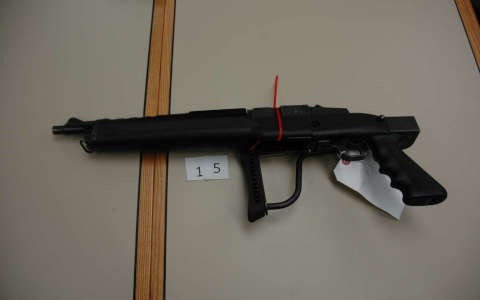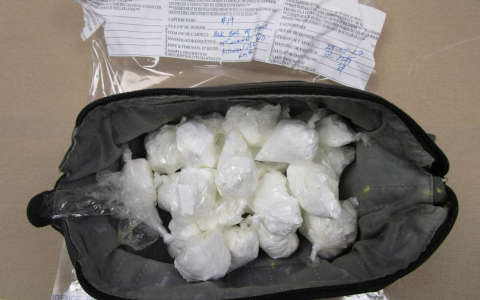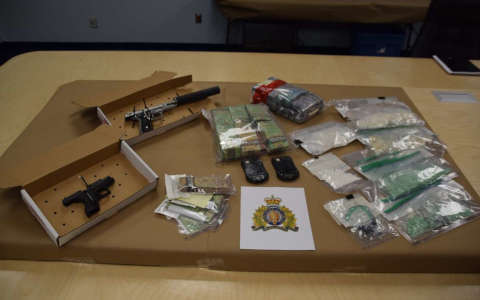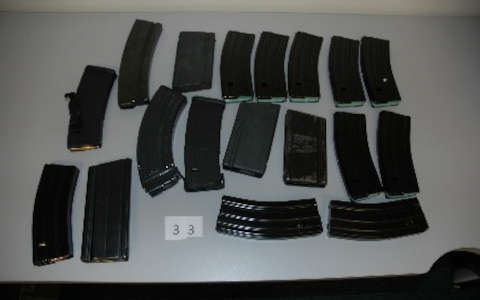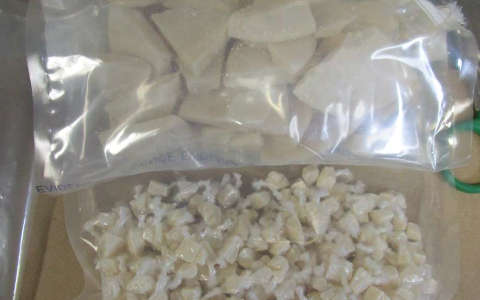Snapshot: Organized crime in Yukon communities
If you suspect illicit activities are occurring, report it to your local RCMP or Crime Stoppers at 867-667-6715 or at www.crimestoppersyukon.ca.
Organized crime touches almost every community in Canada, and that includes the Yukon. Unfortunately, the effects or consequences of organized crime have impacts on everyone, whether they're involved or not.
On this page
What is organized crime?
A "criminal organization" is a group that:
- has three or more people
- exists to make money or get other benefits through illegal activity
Organized crime groups commonly participate in illegal activities such as:
- drug trafficking
- firearms trafficking
- human trafficking
- theft
- fraud
- cybercrime
While fraud or cybercrime can be committed by just one individual, drug, firearm and human trafficking commonly involve the participation of three or more people and qualify as organized crime.
With the Yukon's proximity to British Columbia and Alberta, the territory is sometimes used as either a trafficking route or destination for criminals.
Examples of organized crime in the Yukon
Over the past decade, Yukon RCMP have seen:
- large quantities of cocaine, fentanyl and other opiates being sold in Whitehorse and other communities
- large numbers of manual and semi-automatic firearms being possessed illegally and seized by those tied to drug trafficking
- firearms with silencers and large quantities of ammunition
- abductions and attempted abductions of Yukoners - the intents of which are unknown
- attempted murders and assaults on people with suspected ties to organized crime activities
- property crime where large caches of stolen goods have been recovered
- individuals tied to known gangs wearing clothing with gang names in public
- deaths related to substance use
Why is it dangerous for Yukon communities?
In illicit marketplaces, tensions are already high amongst those involved due to the fear of being caught and the chance to make money. On top of that, where there is money to be made, competition naturally arises.
This creates an environment for unpredictability and potential violence.
Trafficking of harmful drugs, acts of violence or intimidation, diminished quality of life, compromised personal security and disruption of family life are all effects felt from the operations of organized criminal groups.
What can Yukoners do to protect themselves?
Organized crime itself is not often seen by the public, however its effects can be felt by everyone. While RCMP and partners work to prevent and disrupt organized crime and keep communities safe, here are some steps you can take to protect you and your loved ones from organized crime:
- Guide kids and teens to extra-curricular activities starting at a young age
- Provide useful roles for youth to engage in around their community
- Educate young people about the dangers of drugs, gangs, guns and more
- Keep your outside valuables, cars and houses locked
- Practise situational awareness: be aware of what's going on around you so you can anticipate what might occur and respond appropriately to a given situation
- Trust your gut feelings: if you feel uneasy about someone or someplace, you can remove yourself from the situation
- Report any suspicious activities or crimes to your local RCMP detachment or, if you want to remain anonymous, contact Crime Stoppers online or via phone at 867-667-6715
- Report a suspicious property or activity in your neighbourhood to the Government of Yukon's Safer Communities and Neighbourhoods (SCAN) Unit
- Phone 867-456-SCAN (7226) or toll free at 1-866-530-SCAN (7226)
- Email scan@yukon.ca
- For more information on how SCAN works, visit Yukon.ca/SCAN
Warning signs for landlords
Organized crime groups will often use long- or short-term rental properties to facilitate their activities. Landlords have a part to play in protecting their property and communities.
Here are some warning signs:
- Renter asks to pay for their stay in cash
- Visitors are coming and going during strange hours of the day
- Residents demonstrate secretive or paranoid behaviours
- Windows are blacked out or always covered
- Garbage contains unusual amounts of containers
- Burn pits or strange stains in the soil indicating dumped chemicals
- Extensive security measures are added including "Beware of dog" signs, cameras or extra locks
Examples of Yukon organized crime seizures image gallery
Other resources
- Date modified:

